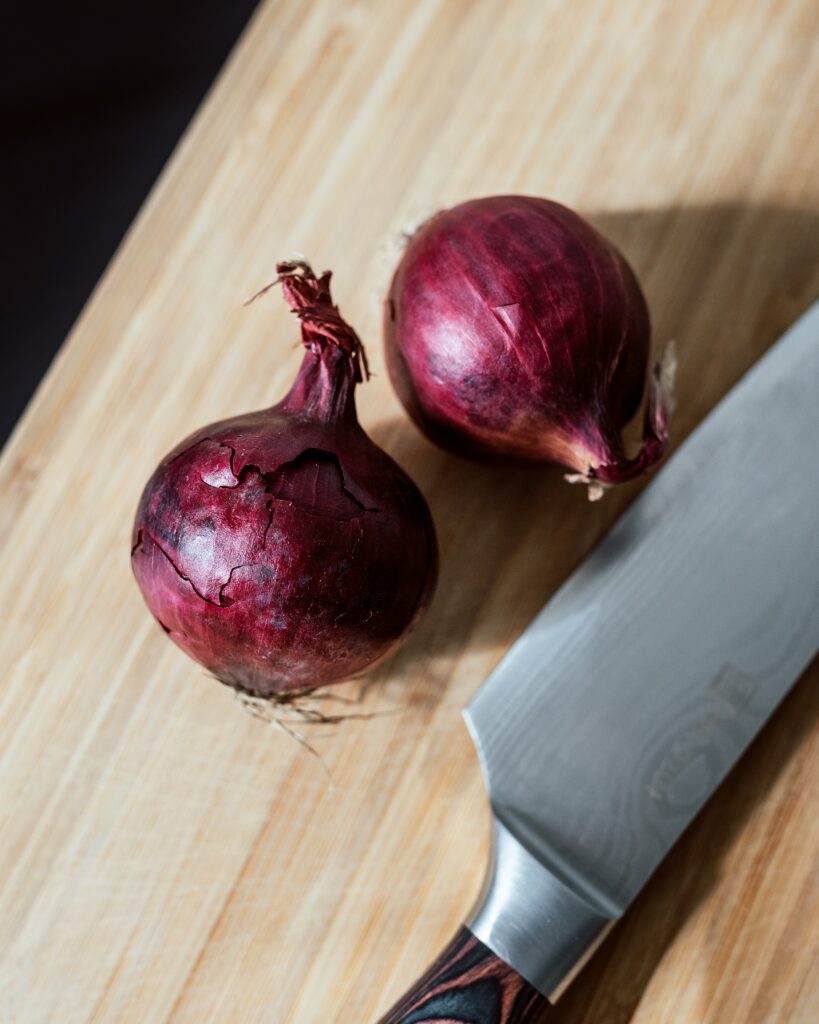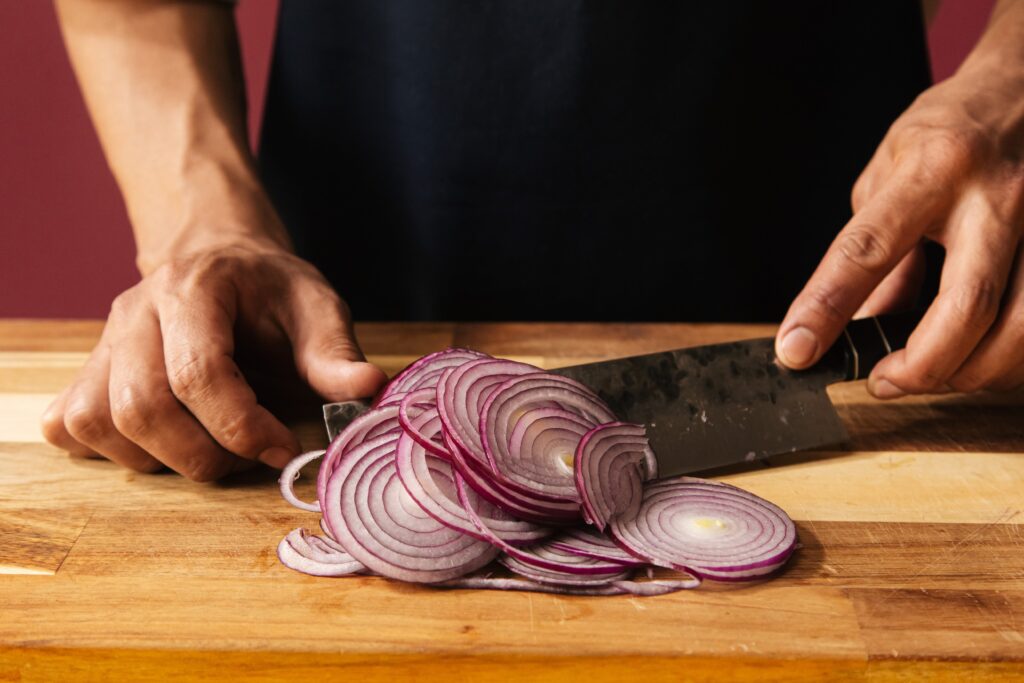Onions are one of the most popular ingredients in food from across the world. From Italian cuisine to Asian staples, onions have their place in our hearts. Unfortunately, they can also find their place in our eyes when cut, causing us to cry whenever we use them in our favorite dishes. But what scientific explanation lies behind the simple impact of an onion making us cry?
Today, we will take a look at why onions make us cry, as well as some possible ideas for how to prevent crying when cutting onions!
Why Do We Get So Teary-Eyed in the Kitchen?
When an onion is cut, it releases chemical compounds that can mix and react, causing a tear response. These chemicals are diverse and numerous, which can make the process super complex. Any compound known to cause eye irritation and distress is known as a lachrymator.
In short, onions don’t usually make us cry because their cells are intact. When cut, these cells can deform, split, and open up, causing chemicals to release in the form of liquids and gasses. For onions, many of the volatile lachrymator compounds contain sulfur, which is a vital nutrient required for proper onion growth.
In addition to volatile sulfur compounds, onions also contain enzymes that catalyze reactions which turn the compounds into chemicals such as sulfuric acid. Upon cutting, numerous reactions occur, all of which create compounds that are extremely irritating to our eyes. When these are thrown up into the air, the process of cutting an onion can become a real tear-jerker.
Do All Onions Make You Cry?

Most onions contain the proper enzymes and chemicals that are required to produce a crying response. With that said certain onions may have more of these compounds, causing a stronger or faster tear response.
Red onions and yellow onions are said to contain more sulfur and “crying enzymes” which makes them more likely to cause a reaction.
Do All People Cry When Cutting Onions?
You may be wondering if all people experience the effects of onions the same. Generally speaking, some people are genetically predisposed to having stronger reactions to the compounds within onions. People who have allergies to plants in the allium (onion) family, or people who are generally sensitive to foreign allergens are likely to experience the effect of onions more often than others.
Regardless of what type of onion you use, you are likely to experience some type of response. You don’t have to worry for long! Recent work done by plant breeders and scientists has yielded some of the first naturally bred tearless onions.



